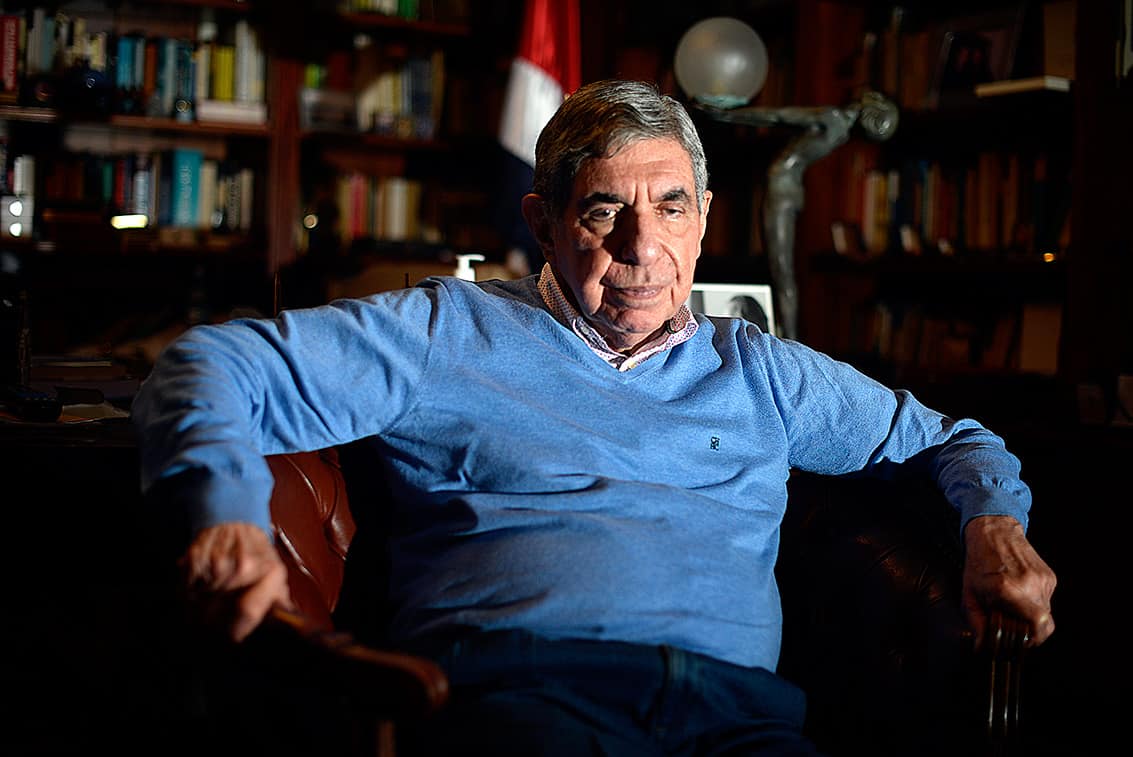The U.S. government has revoked the visa of former Costa Rican President Óscar Arias, a Nobel Peace Prize winner, as of April 1, 2025, amid escalating tensions with China over 5G technology. Details remain scarce—neither Arias nor the U.S. Embassy has commented officially—but the move follows his vocal criticism of American influence, suggesting a geopolitical motive. Miguel Guillén, Secretary General of the National Liberation Party (PLN), confirmed Arias received an email from the Embassy this morning notifying him of the decision, though Guillén admitted he doesn’t know the reasons behind it.
Arias, who served as Costa Rica’s president from 1986-1990 and 2006-2010, earned the 1987 Nobel Peace Prize for brokering peace in Central America’s conflicts. He’s long resisted U.S. dominance, recalling in recent interviews that during his tenure, Costa Rica was never “a country that took orders from Washington.”
He’s stressed that foreign policy should prioritize national interest over geopolitical alignments. Last February, he wrote, “Until today, our government has obeyed President Joe Biden’s orders regarding our relationship with China. I hope to God this doesn’t continue with the new White House occupant,” just hours before U.S. Secretary of State Marco Rubio arrived in Costa Rica. That timing now seems prophetic.
The revocation aligns with a broader U.S. crackdown on Costa Rican figures, including Progressive Liberal Party deputies Johana Obando and Cynthia Córdoba, plus officials linked to the Costa Rican Electricity Institute (ICE) and Huawei. While the U.S. hasn’t specified reasons, context points to cybersecurity concerns tied to Huawei’s 5G role in Costa Rica—a flashpoint in the U.S.-China rivalry. Analysts speculate Arias’ stance on China, or his defiance of U.S. pressure, may have made him a target. This could strain Costa Rica’s neutral stance or delay its 5G rollout as Washington pushes allies to shun Chinese tech.
Meanwhile, Social Christian Unity Party deputy Vanessa Castro also had her visa canceled, learning of it through media reports. “I’m checking; I haven’t received anything. Frankly speaking, I didn’t expect it,” she said. Her case’s connection to Arias or Huawei remains unclear, but it underscores the widening scope of U.S. actions. In recent months, several Costa Rican officials have faced similar visa bans, hinting at a pattern tied to this geopolitical tug-of-war.
Arias is expected to address the issue, potentially shedding light on his next steps or the revocation’s cause.






